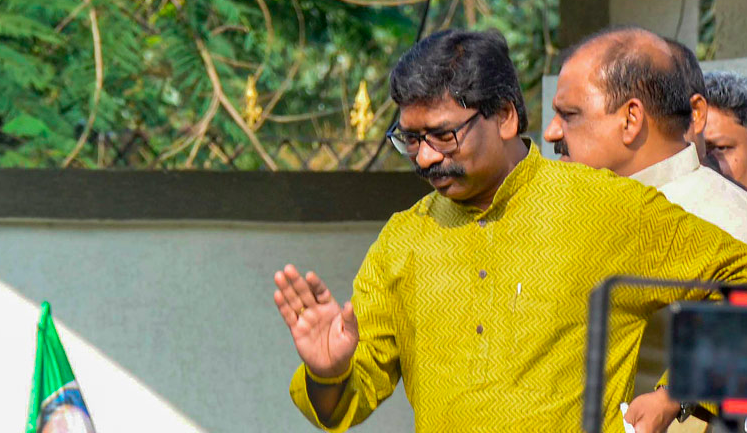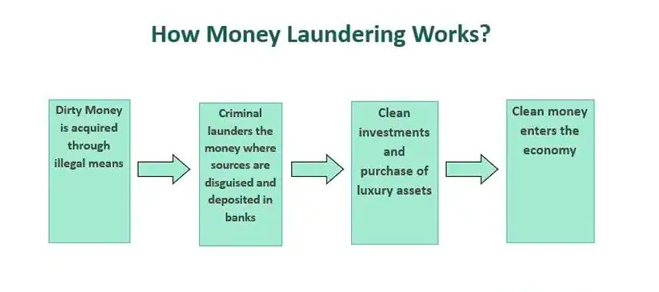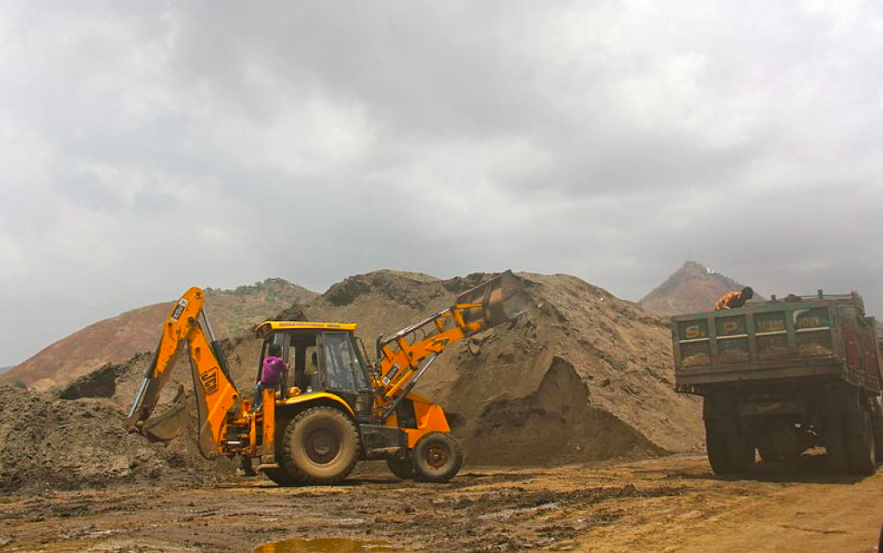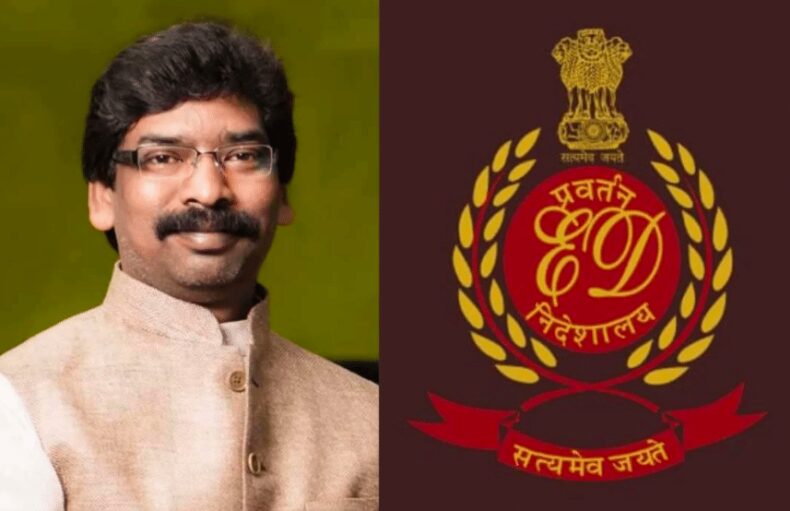CM Hemant Soren received a summons from the Enforcement Directorate on November 3, 2022, but Hemant declined to appear and urged the Central Government to make an immediate arrest if they had sufficient proof.

CASE AGAINST HEMANT SOREN
All of this started on March 8, 2022, when the Enforcement Department (ED) launched an investigation into a money laundering case when an FIR was filed as an Enforcement Case Information Report (ECIR) against Pankaj Mishra, the leader of the Jharkhand Mukti Morcha (JMM), Hemant Soren, and two other associates, Bacchu Yadav and Prem Prakash, as well as the 19 locations in Jharkhand that were allegedly linked to illegal mining In the investigation, ED discovered that Sahibganj’s inland ferry services and illegal mining operations were owned by Pankaj Mishra and his colleagues (Jharkhand). They received numerous political favours, particularly from CM Soren. In accordance with the Prevention of Money Laundering Act, ED finally detained Mishra (PMLA).
On September 16, 2022, a case was brought before the special PMLA Court by former JMM treasurer Ravi Kejriwal, who testified that he saw CM Soren tell JMM leader Mishra to give Prem Prakash the money that came from Santhal Parganas’ sand and stone mining operations. On August 25, 2022, the ED had already detained Prem Prakash after discovering him in possession of two AK-47s.
Over a period of six months, frauds involving illegal mining totalling more than one billion rupees have come to light.
Due to some statements Pradeep Mishra made during the investigation that needed clarification from CM Soren, ED had called CM to appear before the investigative investigators. Following Prem Prakash’s arrest, the Election Commission suggested that CM Soren be barred from the Legislative Assembly and that he must resign from his position as CM. In June 2021, CM Soren allegedly used his power to secure a stone mining lease for himself. However, when the issue grew, he gave up the land.
ENFORCEMENT DIRECTORATE?
It is an organisation that the Ministry of Finance’s Department of Revenue oversees. It was started back in 1956. It looks into frauds connected to rules governing foreign exchange and money laundering. When money laundering has occurred, it may inspect the property and take the money in accordance with the Prevention of Money Laundering Act (PMLA).
Anyone who violates the Foreign Exchange Management Act (FEMA) or the PMLA is subject to ED action. ED can’t, however, act on his own. Recently, ED has been under fire for abusing the PMLA in a number of cases that have made the news.
MONEY LAUNDERING?
It means when money is collected through illegal or criminal activities and converted into clean and legitimate money.

ILLEGAL MINING?
When mining occurs without state approval, especially when there are no or few land rights, mining licences, or exploration and transportation permits, it is known as illegal mining. Sand is a resource that is used a lot, much like air and water. According to Section 3(e) of the Mines and Minerals (Development and Regulation) Act, 1957, and is classified as a minor mineral (MMDR). Minor minerals are not subject to the same strict restrictions as large minerals, which is why several frauds are repeatedly uncovered in various regions of the nation.
The top two nations where illegal sand mining is most common and has the greatest negative effects on the environment are India and China, according to the United Nations Environment Programme Report, 2019. These negative effects include the destruction of aquatic animal habitats, a decrease in groundwater recharge, water pollution, a decline in soil health, and many others.
The problems with minor mineral control are as follows:
- For managing and controlling the mining of minor minerals, each State has its laws that specify things like royalty rates, mineral concessions, enforcement, and other things.
- The Environment Impact Assessment was changed in 2016 to need environmental approval for every mineral found in an area of fewer than 5 hectares, which is another problem. Additionally, the District Expert Appraisal Committee and District Environmental Impact Assessment Authority are provided for. However, the issue arises when state officials conduct an evaluation and analyse more than 50 project proposals in a single day with a rejection rate of less than 1%.
- The National Green Tribunal, among other committees and tribunals, presented recommendations on compensation for illicit sand mining, but the States disregarded them.
- The State Administration’s capability has been lowered due to the government’s ineffective regulation-making, inadequate oversight, and excessive litigation.

Read more: Possible Jharkhand CM contender if Hemant goes
Also read: Mukul Rohtagi: A lawyer with uncanny abilities and a long list of clients













